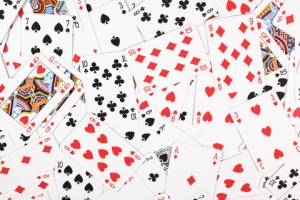Card counting is a hot topic in many debates involving the casino-loving risk takers of the world. People have frequently taken sides and switched, only to find themselves feeling half-hearted about whether this is ethical or not.
Like chess, card games are thought to originate as a game of kings who have taken to the table to conclude their duels in a fashion that is much less violent

Image source: mikeaponte.com
compared to what goes on in the actual battlefield. In a nut shell, the cards are an expression of tasteful statesmanship in the confines of healthy competition. Infusing the thrill with stakes such as money was later on introduced to keep the game more interesting.
This practice of making mental notes of cards accounts for the player’s silent earmarking of cards as they reveal themselves on the gambling table. To those who see this is as a violation, they feel that keeping tabs on the passing cards creates an unfair advantage, where the battle among the civilized is tainted with greed, thus defiling the traditional tenets of the game.

Image source: blackjackapprenticeship.com
To passionate competitors, card counting is hardly a concern because it cannot be avoided to begin with. It so happens that the deck of cards is a limited set of 52, and the probabilities become more predictable as the cards are revealed. Their argument stands solidly on the fact that it’s highly impossible for this not to be considered in strategic decisions they have to make to win. Here is where mathematical realities come into play.
The debate ends only when the population of card players of the world becomes an extinct species. But that’s not going to happen, ever. Meanwhile, perhaps it’s only fair that we pass the time with a friendly game of cards.
Tracy Luttrell here. I spend some of my most enjoyable moments visiting casinos. If you see me, I’m usually with my cousin and best friend Maybelle. Connect with me onTwitter.